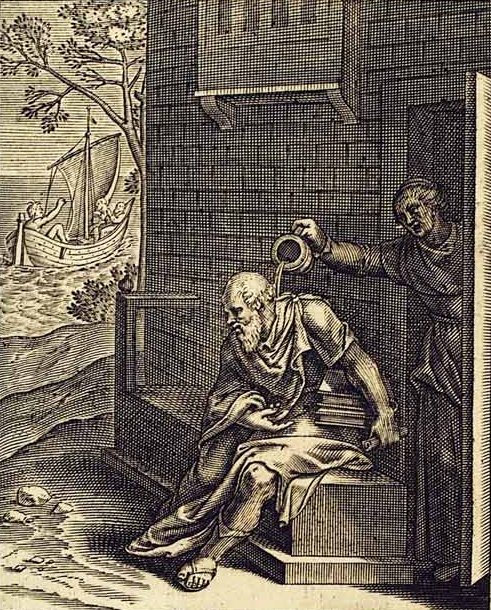Soooo, she decides she must really be Hisself returned to Earth as herself.
As to the appeals of ancestry I see it's common function of bolstering modern identity and shrug. For me it is an opening to the story that happened fueled by a touch of sympathy - not to say that this attitude does not mean some astral shade is looking over my shoulder now. It just so happens that yesterday morning I was listening to Sledge discuss the book used by Grand Jurors in the SWT. He mentioned sitting in the ruined basement of the Parris house, contemplating the horrors of that time.
In place of identification and bemoaning an old injustice, I myself had stood in Rebecca Nurse's house and saw the prongs on a support beam and asked, "Where's the musket?" I learn from the curator, expressed with the Massachusettsian discomfort towards guns (that is, until they are holding one), that it is out for "renovation". She also expressed a justification - the old woman needed the musket to defend against the neighbor's pigs that often tore up her garden. More reasons arose, of course - this is frontier life after all. So, pork for supper, she gets labeled a "witch" by the neighbor, just as her mother (
Joanna Blessing) had over a property dispute with the Carr family in the 30's. This some time before the writhings of Abigail and Betty and the capitulations of Tituba.
Ah, but Tituba for a date? I leaning towards the theory that she was a Venezuelan Indian, though most depictions of her as being of Caribbean-African ancestry have a modern sympathetic appeal. I also think that the reason she was not hanged is because, regardless of her supposed complicity via forced testimony, she was
property. There's so much distortion there, so I can't blame people for going with what they (think they) know, and I will even forgive HPL's use of the SWT as a plot device. I don't recall him mentioning Tituba, but it's been a while.
If I had to choose who to date from the SWT, I'd try Mary Warren - her ping pong ball existence in that time must have been quite bewildering. To be both accuser and accused, caught up in the "Heathers" fad (if you recall that movie) one moment only be beaten into her sense by the Proctors. Then to face a wall of predetermined judgements from the magistrates and collapse into confession, though spared as a head spinning tool of further testimony. Not as bad a case as Tituba, but at least I can imagine that the slave could still tell which way was up and which way was down. Last I read, though probably suspect, Mary remained "afflicted" for the rest of her life.
But for Joanna (Juana) I poke and find that madness is...d
isputed. Interesting, so I then question whether anecdotes are shadows of the machinations of a clever princess in some drama tinged with touch of Poe. Maybe someone will make a movie and put it on Netflix - though I doubt history will be respected. The Borgias show I cited in the Caterina Sforza post was an entertaining mutilation. There was another interpretation which was more brutal, like Game of Thrones, but the mixed accents of the international cast was hard to follow - Alexander VI with an American accent but Lucrezia clearly German.

